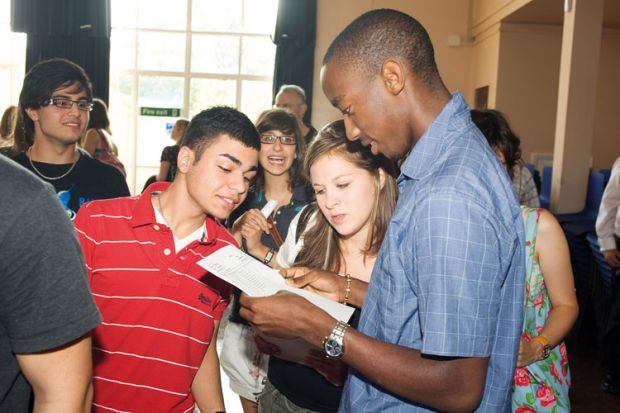University offer-making “does not reflect any systematic bias” against black and ethnic minority students, a Ucas study has concluded.
The admissions service has released the results of analysis that found that black and ethnic minority applicants are significantly less likely to be offered places by England’s leading universities than white students with the same grades because they tend to apply for more competitive courses.
The findings contrast with research by Vikki Boliver, senior lecturer in sociology and social policy at Durham University, that suggested that highly selective institutions may be unlawfully rejecting applications from ethnic minorities in order to recruit cohorts that reflect the demographic make-up of the wider population.
The Ucas study, which was based on applications submitted to highly selective universities between 2010 and 2014, calculated an “expected offer rate” for 18-year-olds based on their predicted grades and the courses which they applied for, and compared this with the actual rate.
Although the actual offer rate for black and ethnic minority students was substantially lower than the rate for white applicants, Ucas said it was “close to what would be expected”, given that they tended to apply for higher tariff institutions with lower offer rates.
The offer rate was lower than expected in nine out of 14 subject areas, but in five cases the disparity was smaller than 1 per cent. The offer rate for black and ethnic minority students was higher than expected in five cases.
Mary Curnock Cook, chief executive of Ucas, said that the analysis was “encouraging in that it does not reflect any systemic bias against ethnic minorities”.
“What is clear is that the white group of applicants are more likely to ‘play it safe’ with their choices, selecting courses where the offer rate is higher,” she said. “In contrast, the choices of some other ethnic groups – with the same set of predicted grades – tend to be more ambitious.”
Dr Boliver said there could be significant differences in success rates between ethnic minorities, and highlighted that Ucas’ study excluded students who applied before the annual 15 October deadline, and therefore to the universities of Oxford and Cambridge, and for medicine or dentistry courses.
“Ucas’ findings are far from conclusive,” she said. “A much more comprehensive and detailed analysis is needed.”
POSTSCRIPT:
Print headline: Ucas: no admission bias against BME students
Register to continue
Why register?
- Registration is free and only takes a moment
- Once registered, you can read 3 articles a month
- Sign up for our newsletter
Subscribe
Or subscribe for unlimited access to:
- Unlimited access to news, views, insights & reviews
- Digital editions
- Digital access to THE’s university and college rankings analysis
Already registered or a current subscriber? Login




